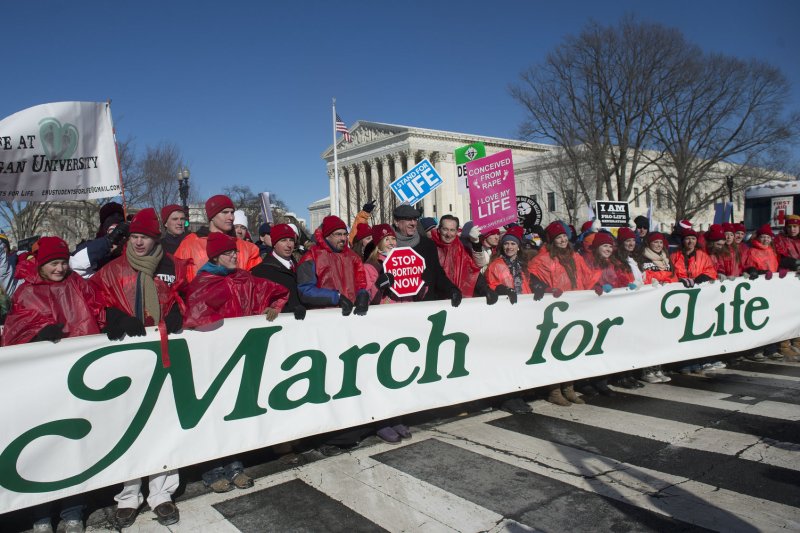AUSTIN, Texas, Aug. 4 (UPI) -- Texas defended its requirement that abortion clinics meet the standards of ambulatory surgical centers Monday as clinics asked a judge to overturn the law.
Outside the courthouse in Austin, about 100 protesters from both sides gathered in a park. Anti-abortion activists held a prayer vigil in support of the law.















